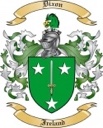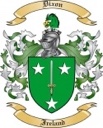
Eric Miller's Family Tree
Person Chart
Parents
| Father | Date of Birth | Mother | Date of Birth |
|---|---|---|---|
 William Dixon William Dixon |
1605 |  Katherine Berkeley Katherine Berkeley |
1606 |
 William Dixon William Dixon |
1588 |  Katherine Berkeley Katherine Berkeley |
1606 |
Partners
| Partner | Date of Birth | Children |
|---|---|---|
 Mary Wilson Mary Wilson |
1633 or 1625 |  Elizabeth Dixon Elizabeth Dixon Mary Dixon Mary Dixon Sarah Dixon Sarah Dixon Ambrose Dixon Ambrose Dixon Grace Dixon Grace Dixon Alice Dixon Alice Dixon Hannah Dixon Hannah Dixon Thomas Dixon Thomas Dixon |
Person Events
| Event Type | Date | Place | Description |
|---|---|---|---|
 Birth Birth |
1619 | London, Middlesex, England | |
 Marriage Marriage |
abt 1649 | Northampton County, Virginia, United States | |
 Occupation Occupation |
Caulker of boats | ||
 Death Death |
4/12/1687 | Annemessex, Somerset County, Maryland, United States |
Facts
| Fact | Description |
|---|---|
| National or Tribal Origin | English |
Notes
| Find A Grave Story Ambrose Dixon (c. 1628 - April 12, 1687) was an early American pioneer who was born in England and emigrated to America at an early age where he lived in the Virginia Colony before moving to Maryland. He is said to have married a Mary Wilson.He was a Quaker and moved to Maryland to escape religious persecution. His home became the first Quaker meeting house in Maryland. On March 3, 1671 he was elected a delegate in the Maryland Assembly representing Annemessex County, Maryland. He never attended.He died in April 1687 at his plantation Dixon's Choice. Dixon was buried at the Quaker Meeting House Cemetery on April 12, 1687 at Annamessex Hundred, Somerset Co., Maryland. Dixon had donated the land that the Meeting House was built on.He is the immigrant ancestor to thousands of Americans including the Indiana blacksmith Noah Beauchamp who murdered his neighbor in the 1840's. |
| Ambrose Dixon a caulker by profession that lived longe in ye lower parts, was often in question for his quaking profession, removed to Anamessicks, there to Act what he could not be here permitted, Is a prater of nonsense, and much led by ye spirit of Ignorance, for which he is followed, A receiver of many quakers, his house ye place of their Resort, and a Conveyor of or engaged persons out of the County, averse to Govmt, for wch he stands arrested, and y broad arrow on his door, but bids defiance until severer course reforme him. |
| Ambrose Dixon (b. 1620, d. April 12, 1687) Ambrose Dixon (son of William Dixon and Katherine Barkley) was born 1620 in or 1628, London, Middlesex, England254, and died April 12, 1687 in Annamessex, Somerset Co., Maryland, God's Acre254. He married Mary Wilson Peddington on 1650 in Virginia. Notes for Ambrose Dixon: last updated Sat Dec 4 10:34:18 1999 F. Joseph Ginorio ID: I1692 Name: Ambrose Dixon Sex: M Birth: 1628 in London, Middlesex, England Death: 12 APR 1687 in Annamessex, Somerset Co., Maryland - God s Acre at the Annemessex Meeting House _FA1: 1688 in Maryland Calendar of Wills - V-2, pg 34 _FA2: in Quaker Dixon Information provided by Kate and Bill Matthews. Ambrose Dixon, the Immigrant and a Quaker is well-known in Lower Eastern Shore history as being one of the "Guiding Lights" of early Somerset County. He married Mary Wilison, daughter of George Wilison, widow of Henry Peddenden. She had a son Henry, by her first marriage. Ambrose and Mary had issue: Mary, born circa 1650, married July 8, 1666, Thomas Cottingham, died 1681/6; Sarah, born circa 1653, married June 11, 1668 by Mr. Stephen Horsey, to Edmund Beauchamp, their son Thomas married Mary Turpin (see BEAUCHAMP); Thomas; Ambrose, 1655-1662/3; Elizabeth, born circa 1657, married Robert Dukes, their issue: Elizabeth, Mary, Robert, John, and Sarah. Elizabeth Dukes died February 28, 1687, and was buried with her father, Ambrose Dixon, in God s Acre at the Annemessex Meeting House; Grace, born circa 1659; Alice, born February 14, 1663/4, married Henry Potter, son Thomas, 1679-1727 and daughter Hannah, born June 13, 1689; and Hannah, born September 9, 1666, died October 1667 at Annemessex, Somerset County, MID. Upon their arrival in the Colonies about 1649, the Dixons lived in Northampton County, Virginia, then moved to Somerset County, Maryland, about 1661 (three years before its establishment) because of religious conflicts, leading to civil disagreements with the Government of Virginia. Lord Baltimore, Proprietor of Maryland, had persistently urged his provincial authorities to protect his territorial rights of the Eastern Shore. Lord Baltimores Maryland boundary was being encroached in the north (now Delaware) by Lord de la Warre; the southern borders were being manipulated by the machinations of the power-mad Colonel Edmund Scarburgh. Lord Baltimore anxiously offered land to those disaffected by the happenings in Virginia. Ambrose Dixon and his fellow Quakers and Dissenters, predominately Stephen Horsey (see STEPHEN HORSEY), Thomas Price, Henry Boston, George Johnson, William Coulbourne, Robert Hart, and Alexander Draper, accepted Lord Baltimore's offer of land in religion-tolerant Maryland. They settled on the Annemessex River. Ambrose patented land known as "Dixon s Choice", his homeplace, now known as the Sol Tull farm west of Marion Station, Somerset County, Maryland. It is thought that the back of the farmhouse now on that farm was the original dwelling built by Ambrose and Mary. Looking at it in reality and from an aerial photograph, it looks as though this could be true. Ambrose also held a piece of property on the west side of Marumsco Creek called "Dixon s Lott". In his following years, he accumulated other properties, one of which was "Dame s Quarter", a marsh suitable for grazing cattle. Ambrose was a caulker by trade, but he amassed a comfortable property of fertile lands and several Negroes. Even after Ambrose s entry into Maryland, he and his fellow Quakers and Dissenters were persecuted. Colonel Edmund Scarburgh, ardent Virginian and noted Indian-baiter, in his contrivance to force the settlers of the Annemessex and Manokin Rivers into Virginia s jurisdiction, continued to harass the settlers. He would bring his troops into Annemessex, try to arrest Ambrose and his friends, and upon their "disappearance" would paint "ye broad arrow of confiscation" (a broad yellow arrow) on the doors of their homes. Once he called Ambrose, "a prater of great nonsense, much lead by ye spirit of ignorance"; in 1663, he referred to Ambrose as, "A receiver of many Quakers, his house a place of their resort.". In November 1661, Ambrose appears as one of the first "surveyors for ye highways" for the State of Maryland. In November 1666, Ambrose Dixon, Ambrose London, Paul Marsh, and Roger Woolford were elected delegates to represent Somerset County in the Lower House of the General Assembly of the province to be convened March-April 1671, however, when the assembly met, only Marsh and Woolford appeared as Somerset delegates. No explanation was given for why Dixon and London did not attend. (Could it be because they were both Quakers and could not Ôswear an oath ?) Undoubtedly, through the years, Ambrose and Mary s home served as a meeting place for Quakers in the area, confirming Scarburgh s reference to it as a "place of their resort". Ambrose gave the land for the Quaker Meeting House, God s Acre, from his property sometime before 1687, for it is recorded that "Ambrose Dixon, Senr died and was buried at the meeting house in Annemessex the 12th day of Aprill Annoq Dotm one Thousand Six Hundred eighty & seaven". Ambrose Dixon I, born 1628 in London, Middlesex, England; died April 12, 1687 in Annamessex, Somerset Co., MD, Colonies of GB in America; married Mary Peddington Abt. 1649 in Westmoreland, VA, Colonies of GB in America. Ambrose Dixon came to the Eastern Shore of VA about 1649. He married Mary, widow of Henry Pennington. He was a Quaker and after Charles II came to the throne of England, Ambrose and his family, including his wife's son, Henry Pennington, moved to Maryland. He took land there in about 1661-62. See "Old Somerset on the Eastern Shore of Maryland" by Torrence. The first mention of Ambrose DIXON is in Accomack/Northampton County Court Records dated 7 Sept. 1640. Here are the exact words and spellings: Forasmuch as it hath appeared unto this Court this present day that there is certen wages due unto Ambrose DIXON and unto some others For theire service and Labour done and performed [on board the] Pinnace called the Accomack which as yet remayneth unsatisfied It is thereupon thought Fitt and soe ordered By this Courte that as well the said Ambrose DIXON as allsoe the rest whose wages are remayninge behind and unpayed shall Bee satisfied and discharged unto them and eyther of them By and out of the Cargoe that lately came in the said Vessell called the Accomack as afforesaid fiz. For soe much as they and eyther of them shall justly make appeare to bee Due Ambrose DIXON married the widow Mary Peddington, their first 6 children are born in Northampton Co. starting with Mary DIXON c1650, Thomas DIXON c1651, Sarah DIXON c1653, Ambrose DIXON c1655 (died young), Elizabeth DIXON c1657, and Grace DIXON c1659. In 1651 he joined Edmund Scarburgh and several others in riding against the Indians in defiance of the law. A Court Order of 10 May 1651 says: Whereas Mr Edmund Scarburgh, Mr Thomas Johnson, Mr Richard Vaughan, Captain John Dollinge, John Robinson, Toby Norton, Richard Baily, Ambrose DIXON, Richard Hill, Jenkin Price And divers others Inhabitants and free men in the Upper parte of the parish in the Countie of Northampton Did in a Hostile manner (contrary to the knowne Lawes of Virginia And the League made with the Indians) upon the 28th day of Aprill last past Rayse a partie of men to the number of fiftie persons with Armes and ammunicon And upon the aforesaid daie marched amonge the Indians with a Resolucon to take or kill the Queene of Pocamoke, shott att Indians, slashed and cut [can't read], Took Indyans prisoner, And bound one of them with a Chayne, which said Accons caused the Indyans To Invade the Countie, to the great danger of our Lives and Estate, It is therefore ordered That the Sherriff shall forthwith Arrest the Bodies of all the abovesaid parties... (goes on to say they are to remain in custody until they post bonds to appear in person at James Citty to answer the Governor and Council on 21 May) The same year, 1651, Ambrose DIXON is among those that signed the Oath of Fidelity to the Commonwealth (The king had been beheaded and the monarchy dissolved, Cromwell was in power) 29 Oct. 1655 - Whereas it appeareth to ye Courte that a dogg and bitch of Ambrose DIXON followed one Tho: Ward and was by a servant of Mr Jno Tilnage found aworrying of two sheep of ye said Tilnage which dyed of the biting of ye said dogge and bitch It is ordered that ye said Tho: Ward shall forthwith make payment unto ye said Mr Jno Tilnage 360 lbs tob. and caske with court charge It is further ordered if any man or woman for further time shall walk with a dogge or bitch that shall kill any sheep that it be thereby charged that the party soe offending shall pay the full value of the sheep worried or killed This is from Old Somerset on the Eastern Shore of Maryland by Torrence:page 299 - "As early as November, 1658, Ambrose Dixon (and 3 others) was before Northampton Court at the suit of the Reverend Thomas Teackle, rector of Hungar's Parish, for non-payment of minister's and church dues, having been formerly ordered by the vestry to pay them. The court sustained the vestry's order." page 303-304 - " In November, 1660, Ambrose DIXON (and 4 others) were brought before the court of Northampton County for breach of the law concerning Quakers. Ambrose DIXON was arraigned for having met with and spoken amongst the people called Quakers, while fearlessly (and perhaps stubbornly) he "acknowledged the same."... "In January 1661/2, when the delinquents in payment of minister's and other parish dues, in Hungar's Parish, were ordered by the Northampton Court to make payment of amounts that appeared to be due by them from the year 1654, Ambrose DIXON was among those who were returned by the authorities as non est inventus (he had left Virginia and could not be found)."DIXON moved into Maryland, settling in Annamessex in 1661. Resentment was very strong in Virginia over the encouragement the governor of Maryland was giving to people to come and settle in Somerset County. Col. Edmund Scarburgh swore that this part of the Eastern Shore really belonged to Virginia. In 1663 he took some of the commissioners and 40 horsemen and invaded the newly formed county with an eye to forcing the inhabitants to swear loyalty to Virginia, not Maryland. The party reached Annamessex on Sunday night, the 11th of October. The next day they went to the house of one of the commissioners, Stephen Horsey, and demanded he swear his obedience to Virginia. Horsey said he could not because he could be hanged by the governor of MD. The broad arrow of confiscation was placed on his door and he was arrested. The party next proceeded to the house of Ambrose DIXON. Two other Quakers who had fled Virginia were there with him. Scarburgh again demanded submission, but DIXON refused. In Scarburgh's own words DIXON was, "a caulker by profession that lived longe in ye lower parts, was often in question for his quaking profession, removed to Anamessicks, there to Act what hee could not be here permitted, Is a prater of nonsense, and much led by ye spirit of Ignorance, for which he is followed, A receiver of many quakers, his house ye place of their Resort, and a Conveyor of our ingaged persons out of the County, averse to Government, for which hee stands arrested, and ye broad arrow on his doore, but bids defiance until severer course reforme him." Scarburgh then proceeded to Manokin where all but 2 of the inhabitants subscribed alligance to Virginia. In all of the about 50 freemen living in the area only 8 refused to give in to the colonel. He then left feeling that he had secured the area for Virginia. On the 10th of November 1663 the Court at Accomack sent on officer to rally the subscribers to come together and defend themselves against the Quakers. By June, 1664 Governor Calvert complained to Governor Berkeley of Virginia of Scarburgh's invasion, beating and imprisoning the people of Annamessex and Manokin. Berkeley replied that Scarburgh had no authoriy and had acted alone. The boundary was finally settled at a later date, and even later Scarburgh was finally reprimanded for his actions. The high regard in which DIXON was held was shone when he was named in 1666 one of the first surveyors of the highways for the county. The same year he was elected to represent the county as a delegate in Annapolis. He did not go, however, perhaps because as a Quaker he could not be sworn in. Quakers refused to "swear". At a later date they were allowed to "affirm" where swearing in would be required of non-Quakers. Since coming into Annamessex, Ambrose and Mary DIXON had had 2 more children - Alice born 14 Feb. 1663/64 and Hannah (who died young) born 9 Sept. 1666. From then until his death in 1687, DIXON appears 14 more times in the court record for various reasons. That he remained defiant and independent-minded into his old age can be seen in a court case in was involved in in 1677. Ambrose remained an independent thinker all of his long life. When he was in his late 50's he again got into trouble with the authorities. It seems that he disposed of tobacco that the Aunder-sheriff had confiscated on his property to pay his overdue rents and taxes. The "broad arrow" that is mentioned here is the same mark that was put on the door of his house by Col. Scarburgh in 1663. Since almost no one could read in those days, a sign that everyone understood was used. The "Broad arrow" was the sign that property had been confiscated by the authorities and no longer belonged to the previous owner. In 1677 (from Judicial Records 1675-1677) it says: Whereas complaint hath this day beene made to me against Ambrose DIXON of the county of Somerset planter did in or neare about in month of ffebruary last past at ye tobacco house of ye said DIXON upon his plantation after ye marke and dispose of 5 hogsheads of tobacco which was by William Stevens undersheriff to Captain Thomas Waller of Somerset County marked with an broad arrow and intended to be weighed and received of him ye said DIXON towards defraying of his publick dues and his lordships rents and that when ye said William Stevens did accordingly goe about to weigh ye same and to take an exact accompt thereof both for his owne satisfaction and for ye satisfaction of him ye said DIXON that then ye said DIXON (in contempt of ye power and authority of ye said Stevens) did openly and violently by force of armes and divers threatening and abusive speeches withstand and oppose ye said undersheriff and would not suffer him to execute his office but disposed of ye said tobacco aforesaid If therefore ye said DIXON shall not attend ye next county court to bee held in ye said county repaire to it ye said court and therefore before ye commissioners of ye same openly and in public view of ye whole court prostrate himselfe upon his knees and acknowledge his great error to his said Lord Proprietor and crave pardon and forgiveness for ye same promising ammendment for ye same and ye future then and you are hereby strictly willed and required to have ye body of him ye said DIXON at ye next provincial court to bee held att St Maries on ye 19th day of June next to suffer such punishment for ye same as his said Lordships Justices shall think fitt to inflict upon him Ambrose DIXON openly and in publique view of ye whole court did acknowledge his great error and humbly craves pardon and forgiveness for ye same DIXON had clearly gotten in over his head this time and the justices were quick to make an example of him. Whether they then sent him to St. Marys is never said, but probably they made do with his apology. Ambrose DIXON wrote had his will written the 7th of April 1686: Dau Elizabeth wife of Robert Dukes one negro woman Called Betty Ginney and her increase also 1 horse grandchild Thomas Potter sonn of Henry Potter 1 cow and calf 1 mare and her female increase 1 young female negro Thomas Potter to be put to scoole there to learne reading and writting and arethmatik son in law Edmund Beauchamp 1 cow and calf 1 young black mare called Ginney ye Younger Elizabeth Willson ye wife of George Willson mare of ye bay coller with a whitestar in her forehead called by ye name of Jinneywifes son Henry Penington one negro girl about 10 years old James Brown 1000 lbs of good Merchantible tobacco in caskrest to wife Mary Dixon except part Thomas Dixon lives onson Thomas Dixon, son in law Thomas Cottingham, son in law Edmund Beauchamp, son in law Robert Dukes, son in law John Richards, son in law Henry Potter after decease of Wife to be equally dividedif Mary intermarry she is to injoy and posess 1/3 only promised to make over to friends 1 acre of land for ye consideration of 12 pence in money received where meeting house now is Mary Dixon executrix Signed with his marke A codicil - if any of my said children and sons in law shall in any way trouble or molest illegaly my beloved wife, my executrix Mary Dixon in or about or concerning this my last will and testament their shares to be void Ambrose Dixon AD his marke 1688 (on August 14) the appraisers of his estate took their inventory room by room. Here it is, let's take the tour: In Ye Hall Ambrose Dixon's bed and furniture (that means blankets, sheets, pillows, etc) 13 yards of single serge (fabric) 8 3/4 of course kearsey (more fabric) 1 small carpett, 3 cupboard clothes 12 old turkey worked chairs (meand tooled leather) 6 old leather chairs 5 small pieces of old pewter 1 pair of iron doggs (you lay logs on them in fireplace) 1 warming pann (to warm the bed before you get in) 1 small round table and cupboard 3 old chests In ye Closset adjoining to ye Hall 1 match coat (heavy wool coat) 1 chest and 8 botles 1 ild baskett and a littel yarneIn the other little closset 15 nailes (these were very valuable) 1 little sauce pann and skilettIn ye Kitchen 1 old chest and table 1 bread tray and sifter and pillian (as you can see this was a winter kitchen - in August and during hot weather all cooking was done in the negroes quarter as you can tell from the inventory there.) In ye Milke House 3 peuter dishes one little bason 1 frying pan 5 narrow axes and 1 grubbing how 1 box and 8 botles (hard to tell if this was a shed attached to the house as they often were or a separate building. My money's on shed because it's listed in the middle of the listings of rooms in the house. This concludes the downstairs, then then went upstairs) In the Porch Chamber 1 feather bed and furniture 1 feather bed and furniture 2 diaper table clothes 14 napkins 2 towells (diaper was a type of cloth) 1 small parcell of silke 1 chest and box 3 chaimber potts (the word chamber always meant an upstairs room, in this case we know he had a porch because this chamber was over it...also you'll notice Dixon's own bed was downstairs, again because it was summer and it would be cooler downstairs) In ye Wainscott chaimber 1 old feather bed and furniture In ye Chaimber adjacent 1 old small feather bed 6 diaper napkins 3 pewter dishes 10 plates 1 head of a still and 6 spoons 1 iron box with heaters with several trifling things (the "iron box" was a box iron with heaters used to iron material - wondering why only spoons? forks were not in use in America at this date. There were a few in England but they hadn't made it to the colonies yet) In the nigroes quarter 8 iron potts 3 old kettles 2 racks 2 spitts 5 paire pott hooks 1 brass mortar and pestle 1 old tankard 4 wedges 1 driping and 1 frying pan 1 peicher (pitcher) basin and 2 pr tongs 1 old caske 1 broken kettle 1 gring stone 1 broken iron pott 1 white servant his time 1 year 1 nigroe man named Watt 1 nigroe woman and 3 children 1 nigroe woman and 5 children 1 hand mill and 2 old gunns (so 11 people all slept in the quarter and you'll notice there are no beds) Without Doors 1 mare, 1 colt, 1 horse, 3 yearlings, 1 two-year old 3 cowes and calves 3 cowes and yearlings 2 drought oxen 28 young cattele 8 sheep 1 parcel of hoggs 1 cart and wheeles sum 328-3-0 (pounds-shillings-pence) This was a well-to-do amount. Are you wondering why he had 18 chairs, but only "1 small round table"? In those days boards were usually laid across chests or cross-bucks and covered with a cloth for meals. Also children were usually expected to stand during meals while adults sat. The large number of chairs are because Quaker "meetings" were held at his house although a meeting house had recently been built on an acre of ground near DIXON's own house. Remember in the will that Ambrose DIXON wrote he added a codicil stating that if any of the children or sons-in-law bothered his wife in any way they would forfeit their part of his estate? It would seem their son Thomas DIXON did not want to take any chances. About 6 years after his father's death Thomas had drawn up the following "obligation" to make it clear to the law that he had done all he could to make his mother comfortable in her old age. The understanding was that he could then run the plantation on his own and not be accused of "troubling or molesting her". Ambrose DIXON is listed as a headright in 1649. As Nugent says in her book Pioneers and Cavaliers, land for headrights was often, if not usually, claimed years after the person had actually come into the country. The reason was that it cost money to do the paperwork and surveying that was involved in patenting land and few early settlers had money to spare until they had been in the colony for some years. Henry Peddington is first mentioned in the Court Records in 1635 but doesn't claim his free land until 1638. Ambrose DIXON is first mentioned in the Court Records in 1640, but isn't named as a headright until 1649. 20 Sept.1644 Ambrose Dixon immigrated 1663 to Maryland, according to "Liber 5, Folio 255." p 135, The Early Settlers of Maryland, by Gust Skordas, Baltimore, Genealogical Publishing Co., Inc., 1979. ****************** In 1651 Ambrose Dixon joined Edmund Scarburgh and several others in riding against the Indians in defiance of the law. A Court Order of 10 May 1651 says: "Whereas Mr Edmund Scarburgh, Mr Thomas Johnson, Mr Richard Vaughan, Captain John Dollinge, John Robinson, Toby Norton, Richard Baily,Ambrose Dixon, Richard Hill, Jenkin Price And divers others Inhabitants and free men in the Upper parte of the parish in the Countie of Northampton Did in a Hostile manner (contrary to the knowne Lawes of Virginia And the League made with the Indians) upon the 28th day of Aprill last past Rayse a partie of men to the number of fiftie persons with Armes and ammunicon And upon the aforesaid daie marched amonge the Indians with a Resolucon to take or kill the Queene of Pocamoke, shott att Indians, slashed and cut [can't read], Took Indyans prisoner, And bound one of them with a Chayne, which said Accons caused the Indyans To Invade the Countie, to the great danger of our Lives and Estate, It is therefore ordered That the Sherriff shall forthwith Arrest the Bodies of all the abovesaid parties And such other (upon inquiry) as hee shall have notice of (which went out against the indyans upon their Designe) To the Number of 50 persons and that hee keepe them in his custodie untill they enter into bonds to make their personal appearance at James Citty to answer the premisses before the Governor and Council upon th XXIth day of this Instant Moneth (att the suite of our Sovereign King)". He immigrated into Somerset County, Maryland on 4 January 1663 from Accomack County, Virginia with wife Mary; son Thomas; daughters Elizabeth, Mary and Sarah. On 4 January 1666 he was appointed Surveyor for Highways. 3 March 1671 was elected a delegate to Maryland Assembly but he never attended. http://www.flemingmultimedia.com/Genealogy/AmbroseDixon.html ******************* Ambrose DIXON Posted by Karen Hammel on Mon, 29 Mar 1999 Surname: DIXON, POTTER COTTINGHAM, DUKES, RICHARDS, BEAUCHAMP, TOADVINE Ambrose Dixon appears in 1649 as having been transported to Virginia by Richard Bayly, of Northampton County;1 and it is certain that he became a resident of Northampton County, for in March, 1651/2, we find that he signed "The Engagement tendered to ye Inhabitants of Northampton" by which promise was made "to bee true and faithfull to the Commonwealth of England as now Established without Kings or House of Lords."2 In 1652 we find a Mary Dixon transported into the colony of Virginia by Ambrose Dixon and Stephen Horsey, of Northampton County.3 This was evidently Ambrose Dixon's wife, whose baptismal name we know to have been Mary. Ambrose Dixon was a "caulker" by trade,4 no doubt finding extensive demand upon his abilities in a section of country where watercraft were so numerous. However, his life was evidently a quiet one, given to the pursuit of his trade, until the exercise of his religious principles brought him into conflict with the colonial authorities, and thence quite prominently into the records. Ambrose Dixon, with the rise of Quakerism in Virginia, gave whole-hearted allegiance to the faith of the "Inner Light," whose guidance brought him to the insurmountable barricade of the Virginia law against Quakers. In November, 1660, Ambrose Dixon, Thomas Leatherbury, Henry White, Henry Voss, and Levin Denwood, were brought before the court of Northampton County for breach of the law concerning Quakers. Ambrose Dixon was arraigned for having met with and spoken amongst the people called Quakers, while fearlessly (and perhaps stubbornly) he "acknowledged the same." Leatherbury and White also in conflict with the authorities "for breach of ye law concerning Quakers" were "found guilty." Voss, while professing to be transporting Quakers out of Virginia and "up ye Bay [i. e. to Maryland] delusively causes ye sd Quakers to be sett ashore at Nuswattocks [in Northampton County]." The court proved the charge against Voss. Denwood was also brought in for "breach of ye law concerning Quakers." The tender-hearted court "remitted executing ye rigor of ye law" and for the present discharged Dixon, White and Leatherbury from payment of sheriff's and clerk's fees in the cause, but "left them to ye Marcy of ye Honble: Govr & Council for ye present." Voss, for his offence was "referred to ye Censure of ye Honble Govr." Denwood was ordered to give security for his good behavior in the future and to pay sheriff's and clerk's fees "and for further Censure is referred to ye Honble ye Govr & Council."5 So it was that Ambrose Dixon had the distinction, for "conscience sake," of being before the highest tribunal of a temporal power there to "witness" to his faith in the supremacy of the "King of Kings." That Ambrose Dixon (with his fellow religionists) was carried before "ye Honble: Govr & Council" of Virginia there can be no doubt; but the nature of "ye Marcy," or lack thereof, extended by that highest court of the colony to these offending religionists does not appear as the records of the General Court for the period have long since disappeared. No doubt, however, the censure which Dixon (and his companions) received was, in quality, thoroughly in keeping with the law against Quakers, and the spirit of a tribunal thoroughly in sympathy with the terms of that law. As early as November, 1658, Ambrose Dixon, in company with Levin Denwood, Captain William Mitchell, and Stephen Horsey, were subjects of an order of vestry in Northampton County demanding that they pay to the Reverend Mr. Teackle, minister of the parish, the usual dues. The refusal of these persons to do this had caused Mr. Teackle to complain of them to the court which granted him judgment against them, except in the case of Captain Mitchell, "who pleads his privilege as a Burgess." In January, 1661/2, when the delinquents in payment of minister's and other parish dues, in Hungar's Parish, were ordered by the Northampton Court to make payment of amounts that appeared to be due by them from the year 1654, Ambrose Dixon was among those who were returned by the authorities as non est inventus.6 Before this January, 1661/2, when he was returned to the court as non est inventus, we believe that Ambrose Dixon had made his exit from Northampton County in Virginia through the open door of the province of Maryland's toleration of such dissenters and religious rebels, and had entered, with his companion, Stephen Horsey, the settlement at Annemessex on the lower Eastern Shore of Maryland. At any rate, we henceforth find Ambrose Dixon living at "Dixon's Choice" in Annemessex, loyal and undaunted in his spirit of Quakerism. Ambrose Dixon's home on "Dixon's Choice," on the south side of the Great Annemessex River, on the Eastern Shore of Maryland (in later years Somerset County), was the center for Quaker activities in this area at the time of its settlement. Dixon was "a receiver of many Quakers his house ye place of their resort and a Conveyor of our ingaged persons out of the County [i. e. Northampton-Accomack]," writes the caustic Colonel Scarburgh. Ambrose Dixon was truly the guide and guard of his brother "Friends" seeking refuge in Annemessex. He was a rugged soul, absolutely loyal to the faith which he embraced and an imcomparable leader among the Quakers in the Annemessex settlement, and later in Somerset County. The "Inner Light" unquestionably led him by a steep and rough way through this earthly life. Let us hope that "beyond this life" the Light guided him to more pleasant paths. It is interesting to note that what was evidently the first Quaker "Meeting House" erected in Somerset County was built on Dixon's land (see ante, page 91) and that in the "God's Acre" surrounding it Dixon's body was interred when his earthly journey came to an end. "Ambrose Dixon, Senr died and was buried at the meeting house in Anemessix the 12th day of Aprill Annoq Dom one Thousand Six hundred eighty & Seaven."7 Ambrose Dixon married Mary (whose surname is now unknown), who was evidently a widow Pedington, as Dixon, in his will (dated April 7, 1686) devises property to "my wife's son, Henry Pedington." Ambr More About Ambrose Dixon: Date born 2: 1628, England.254 Died 2: 1654, Annemessex, Somerset, MD, USA.254 More About Ambrose Dixon and Mary Wilson Peddington: Marriage: 1650, Virginia. Children of Ambrose Dixon and Mary Wilson Peddington are: +Mary Dixon, b. 1650, Virginia, d. 1692, Annemessex, Maryland. Home | Help | About Us | Biography.com | HistoryChannel.com | Site Index | Terms of Service | PRIVACY © 2009 Ancestry.com |
| Ambrose Dixon's Birthdate I have seen several speculative dates for Ambrose's circa birth year. 1628, 1623 and more recently 1619. The first appearance of Ambrose Dixon is in a court record dated September 7, 1640 in Northampton County, Virginia where he sues for wages owed to him. As the author of "Ambrose Dixon: The Man and the Legacy" points out Ambrose had to be at least 21 in order for him to appear before the court. So this would seem to make him born at the latest in 1619. Of course, he may have been born even earlier than 1619. http://nabbhistory.salisbury.edu/settlers/profiles/dixon.html |
Sources
| Description |
|---|
 Delmarva Settlers Settlers and Sites - Ambrose Dixon Delmarva Settlers Settlers and Sites - Ambrose Dixon |








